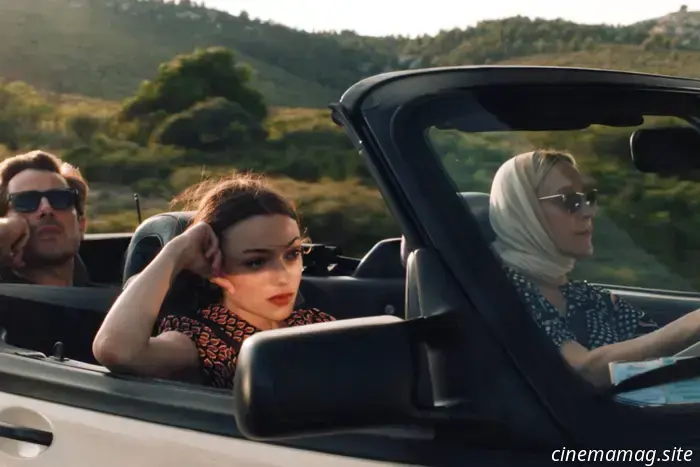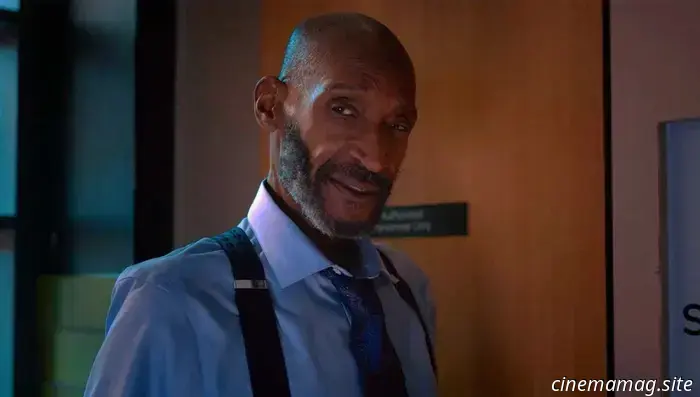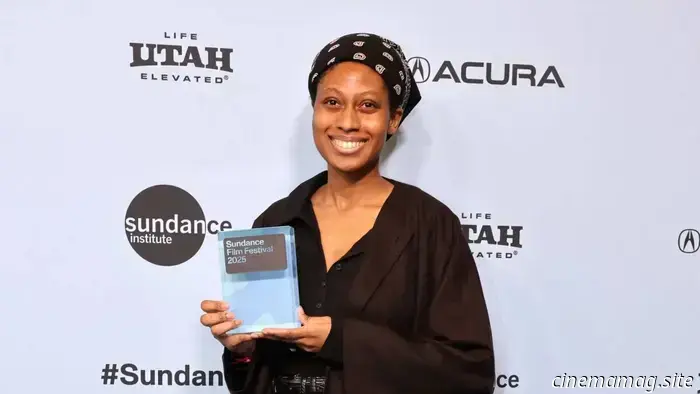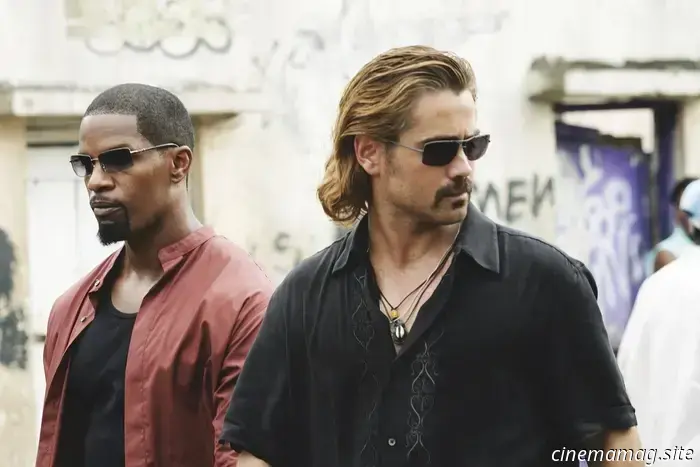
Bonjour Tristesse Review: The Remake Takes a Different Approach Compared to Otto Preminger’s Classic.
Note: This review was initially published as part of our coverage of TIFF 2024. Bonjour Tristesse will be released in theaters on May 2.
There was a hint of apprehension going into Bonjour Tristesse. It presents itself as an "adaptation" of Françoise Sagan’s work instead of being a remake of Otto Preminger’s acclaimed film, leading to some doubt about the audacity required to believe one could surpass such a distinguished craftsman at his peak. Directed by writer-turned-filmmaker Durga Chew-Bose with a notable level of formal confidence (this is far from a work like Maximum Overdrive that comes from a career switch), this 2024 version is a commendable effort that will resonate with many viewers who might not have connected with the original. A significant distinction is that Preminger used the film as a platform for his muse, Jean Seberg, infusing a somewhat male gaze into the entire project. In contrast, Chew-Bose’s rendition leans more towards the feminine rather than explicitly feminist, exploring a kind of neurosis that doesn’t deliver straightforward resolutions.
For those unfamiliar with the narrative, our “heroine” is the teenage Cecile (Lily McInerny), who enjoys a languid, opulent summer at her widower father Raymond’s (Claes Bang) estate in France. She is romantically involved with a charming yet superficial young man (Aliocha Schneider), while her father spends time with a young dancer (Nailia Harzoune). Their sunlit days filled with fine food and conversation seem endless. A twist comes with the arrival of Anne (Chloë Sevigny), a family friend working in the fashion industry. Introduced with a bun hairstyle (the film pays homage to classic Hollywood with an evident nod to Vertigo), this perpetual It Girl embodies a movie-star presence in multiple ways, despite being credited only as “and.”
Anne alters the existing dynamics in significant ways. Cecile and Anne bond because Anne treats Cecile as an equal, but competition for Raymond's affections is always simmering beneath the surface. Delving deeper, the subtext of Sevigny’s casting appears to evoke a sense of ’90s nostalgia. Although the film is set in contemporary times, aside from a few cellphone interactions, it feels as timeless as the original. Nevertheless, the downtown-90s cool influences contemporary trends so strongly (evident in Sevigny's recent appearance in a Charli XCX music video) that, with its character tensions, Bonjour Tristesse increasingly reflects a current generation's insecurities.
Bonjour Tristesse adopts a dialogue-heavy and patient approach (which also includes some enviable lifestyle visuals), which places significant emphasis on female relationships, potentially alienating some viewers (several middle-aged male audience members walked out during the press screening). Chew-Bose’s direction is often quite tasteful, bordering on excessive; the numerous whispered conversations tip the film from gentle character study to a slight self-importance, revealing a palpable awareness of heightened sensitivity. However, despite its flaws, Bonjour Tristesse still proves itself: its brand of melancholy resonates distinctly compared to its classic predecessor.
Bonjour Tristesse premiered at TIFF 2024.
Other articles
-Movie-Review.jpg) Electra (2025) - Film Review
Electra, 2025. Directed by Hala Matar. Featuring Maria Bakalova, Jack Farthing, Daryl Wein, and Abigail Cowen. SYNOPSIS: A reporter and his female partner journey to Rome to interview a renowned musician, only to find that a kind invitation to a country estate transforms into something far more surprising than anticipated. The co-writer/director establishes a strong psychological thriller foundation in the film.
Electra (2025) - Film Review
Electra, 2025. Directed by Hala Matar. Featuring Maria Bakalova, Jack Farthing, Daryl Wein, and Abigail Cowen. SYNOPSIS: A reporter and his female partner journey to Rome to interview a renowned musician, only to find that a kind invitation to a country estate transforms into something far more surprising than anticipated. The co-writer/director establishes a strong psychological thriller foundation in the film.
 Marvel reveals variant covers for Emma Frost: The White Queen #1.
In June, Emma Frost will take the spotlight with the debut of her own five-issue solo series written by Amy Chu (Red Sonja) and illustrated by Andrea Di Vito. Marvel has revealed that alongside a main cover by David Nakayama, the first issue of Emma Frost: The White Queen will [...]
Marvel reveals variant covers for Emma Frost: The White Queen #1.
In June, Emma Frost will take the spotlight with the debut of her own five-issue solo series written by Amy Chu (Red Sonja) and illustrated by Andrea Di Vito. Marvel has revealed that alongside a main cover by David Nakayama, the first issue of Emma Frost: The White Queen will [...]
 In the promotional material for Final Destination: Bloodlines, Tony Todd's character, William Bloodworth, elaborates on the concept of Death's plan.
Warner Bros. has released a new promotional clip for Final Destination: Bloodlines, the sixth entry in the horror series, featuring Tony Todd's character, William Bloodworth, as he outlines the rules of death and survival to a new frightened group trying to avoid their horrific destinies; you can watch it below… The film is directed by Adam Stein and Zach Lipovsky. The screenplay […]
In the promotional material for Final Destination: Bloodlines, Tony Todd's character, William Bloodworth, elaborates on the concept of Death's plan.
Warner Bros. has released a new promotional clip for Final Destination: Bloodlines, the sixth entry in the horror series, featuring Tony Todd's character, William Bloodworth, as he outlines the rules of death and survival to a new frightened group trying to avoid their horrific destinies; you can watch it below… The film is directed by Adam Stein and Zach Lipovsky. The screenplay […]
 The Fear Street: Prom Queen trailer brings horror to high school.
Netflix has revealed the trailer for the newest chapter in their successful horror series, Fear Street, urging viewers to delve into a fresh nightmare with Fear Street: Prom Queen. Directed by Matt Palmer (Calibre), the film features India Fowler, Suzanna Son, Fina Strazza, Chris Klein, David Iacono, Ella Rubin, Ariana Greenblatt, alongside Lili Taylor.
The Fear Street: Prom Queen trailer brings horror to high school.
Netflix has revealed the trailer for the newest chapter in their successful horror series, Fear Street, urging viewers to delve into a fresh nightmare with Fear Street: Prom Queen. Directed by Matt Palmer (Calibre), the film features India Fowler, Suzanna Son, Fina Strazza, Chris Klein, David Iacono, Ella Rubin, Ariana Greenblatt, alongside Lili Taylor.
 “There are numerous Black stories that have not been adequately examined”: Seeds director Brittany Shyne discusses her Sundance-winning debut.
Director Brittany Shyne may not have been raised on a farm, but her family's background in agricultural work motivated her to create a film focusing on Black land ownership and generational farmers in the Southern United States. She began developing the project that ultimately became Seeds, which received the award for best documentary at Sundance this year, while she was still in graduate school.
“There are numerous Black stories that have not been adequately examined”: Seeds director Brittany Shyne discusses her Sundance-winning debut.
Director Brittany Shyne may not have been raised on a farm, but her family's background in agricultural work motivated her to create a film focusing on Black land ownership and generational farmers in the Southern United States. She began developing the project that ultimately became Seeds, which received the award for best documentary at Sundance this year, while she was still in graduate school.
 Joseph Kosinski is set to helm a new Miami Vice film.
Joseph Kosinski, the director of Top Gun: Maverick, is set to helm a new Miami Vice film for Universal Pictures. As reported by Deadline, the F1 director will travel to Florida to oversee a screenplay by Dan Gilroy, the writer and director of Nightcrawler. The original Miami Vice was a sleek, highly stylistic crime drama conceived by Anthony Yerkovich and produced by Michael Mann for […]
Joseph Kosinski is set to helm a new Miami Vice film.
Joseph Kosinski, the director of Top Gun: Maverick, is set to helm a new Miami Vice film for Universal Pictures. As reported by Deadline, the F1 director will travel to Florida to oversee a screenplay by Dan Gilroy, the writer and director of Nightcrawler. The original Miami Vice was a sleek, highly stylistic crime drama conceived by Anthony Yerkovich and produced by Michael Mann for […]
Bonjour Tristesse Review: The Remake Takes a Different Approach Compared to Otto Preminger’s Classic.
Note: This review was first published during our 2024 TIFF coverage. Bonjour Tristesse is set to premiere in theaters on May 2. There was a bit of apprehension approaching Bonjour Tristesse. By positioning itself as yet another “adaptation” of Françoise Sagan’s work rather than a remake of Otto Preminger’s cinematic masterpiece, there remains some uncertainty regarding the audacity that
